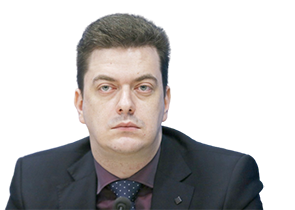Russia has been actively promoting a policy of annexation in close proximity to the United States through its geopolitical satellites. Venezuelan President Nicolas Maduro earlier announced his intention to capture two-thirds of the neighboring Guyana [a large swath of South American savannah and jungle, known as the Essequibo]. According to him, the government is preparing a "great victory".
The situation is very similar to the scenario of Russian annexation of Crimea in 2014. Caracas officials believe that part of the Venezuelan territory was dishonestly seized back in 1899, and now it is the time to restore historical justice. "We are going to take back what our grandparents left for us," he said last week.
As in the Russia-Crimea case, President Maduro made the statement amid staggering array of problems and growing threats to his personal rating. The crisis that struck the Venezuelan economy during the rule of Hugo Chavez, Maduro’s predecessor, significantly deepened today. After a decline in global oil prices, the pace of deterioration of the country’s macroeconomic indicators accelerated. Inflation has exceeded the threshold of 510% in May. Due to the devaluation and inflation pressures there are significant shortages of essential commodities – milk, health care products... The country's largest bank note, 100 "Strong Bolivars," is now worth just 17 U.S. cents on the black market. According to our data, the protest movement is emerging in the north-western parts of the state. Therefore, risks to the current regime tend to increase.
Maduro assigned the task of returning the disputed territory to Venezuela to the newly created state agency called "Essequibo Rescue Office." Caracas plans issuing identification cards to local residents living in the jungle. In total, the area is home to around 200,000 people. Interestingly, this technology has already been tested out by Moscow in Transnistria, South Ossetia and Abkhazia.
The last armed conflict over the disputed territory occurred in 1969 during a so-called Rupununi Uprising, which is suspected to have been supported Venezuela. However, with the signing of the 1983 Protocol, Luis Herrero Kampins, Venezuelan President at the time, had committed to renounce claims to those territories.
The problem re-emerged in 2011 after Guyana’s attempts to obtain legal control over 150-kilometer oil-bearing sea shelf territory. In early 2015, Guyana allowed the US energy giant ExxonMobil, which had been expelled from Venezuela by Chavez in 2007, to drill in its waters. Thus, by encroaching on Guyana’s territory of Essequibo, Caracas intends to stop the oil exploration by ExxonMobil, reducing the oil supply in the region, in hopes to raise the price of the black gold.
Given close political relations between the Kremlin and the government of Maduro, inherited from the late Hugo Chavez, there are serious doubts that the recent statements by the Venezuelan president were drafted in Caracas. It is not typical of Maduro to voice such risky and aggressive messages, despite attempts to use the rhetoric of his predecessor. At least, the actions of the Venezuelan authorities have obvious Kremlin-like schematics and largely repeat Russia's scenario in Crimea. In addition, Moscow has an undeniable interest in destabilizing the situation in the Caribbean, which would not only create a stress point near the US coast with involving Russia’s main antagonist in the conflict, but would also have a political influence on the process of rapprochement between Havana and Washington, which has been threatening the very existence of the “red axis” of ALBA (Bolivarian Alliance for the Peoples of Our America).
Escalation of Venezuela-Guyana conflict will enable Moscow to strengthen its military-political presence in the region, as Russia plans to pose as a peacemaker. It will also create conditions for political bargaining with Washington in the style of the 1962 Caribbean crisis.
Moscow is trying to extend to other regions its tactics of the annexation of neighboring territories, making territorial disputes a common practice. In the future, the spread of the Crimean precedent would allow Moscow to make the international community turn a blind eye on the Crimean issue. According to the Kremlin’s logic, the more territorial conflicts and the related acquisition of territory occur around the world, the easier it will be to pursue Russia’s aggressive policy in post-Soviet countries. At the same time, the possible actions of Moscow in the Caribbean region may as well lead to a hard reset of the power in Venezuela. Nicolas Maduro’s potential is nowhere close to that of Chavez, so it will get even more difficult for him to retain the loyalty of the Venezuelan people amid worsening of socio-economic situation.
Anatolii Baronin


